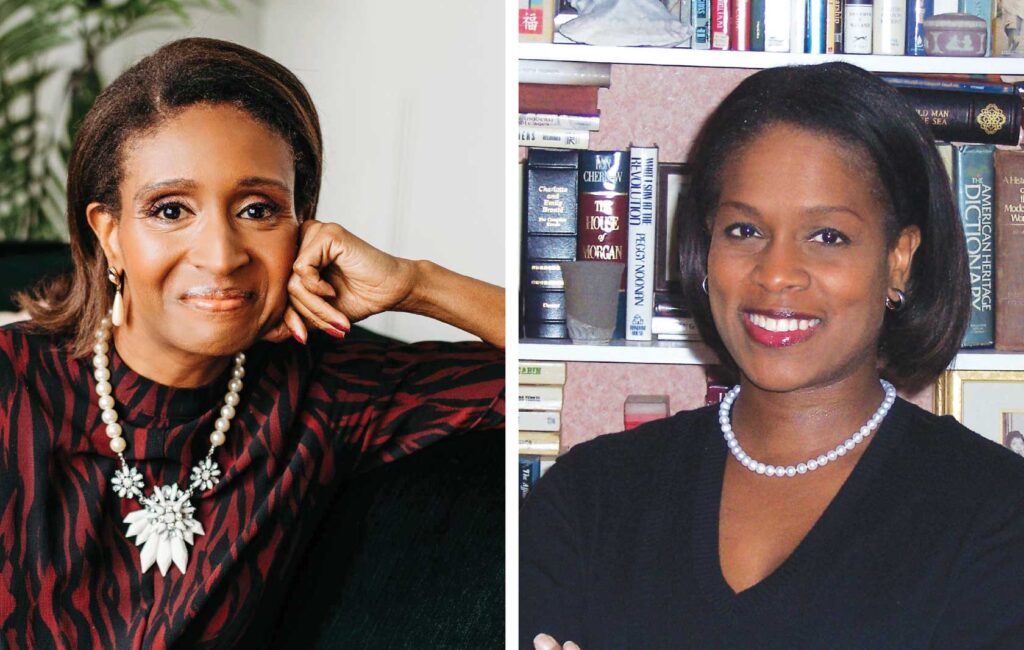
As a young girl, Bithiah Carter would shell buckets and buckets of pigeon peas on the porch of her grandmother’s house in Mississippi. Her grandmother did this because she wanted to use her resources to give back to her community because the peas could feed someone through the winter.
Carter, president and CEO of Give Black Alliance, an organization that focuses on philanthropy within Black communities, said her parents also used their time and talents to support their churches and local soup kitchens, and her family would often volunteer to help their neighbors.
This is what philanthropy looked like for Carter growing up, and now she and other Black women are reshaping the field and its practices.
“Philanthropy is power, the power to change something in your community, the power to create something new in your community,” Carter said. “And I think people have been doing this all along for a very long time.”
Give Black Alliance was founded in 2007 as New England Blacks in Philanthropy to galvanize Black philanthropists in their efforts in Black communities in the region. The organization has since expanded its efforts nationally.
A report published in May by the nonprofit Candid titled “The State of Diversity in the U.S. Nonprofit Sector” found that women of color were more likely to lead organizations with the least resources, while white men tend to lead larger, better-funded nonprofits.
Carter expressed concern over the lack of people of color in leadership roles within philanthropy.
“It’s important to have Black people in these spaces because philanthropy represents power, power then translates into policy,” she said. “And we have to be in these spaces and vigilant about not just thinking that other people will be altruistic and take care of us. … We have to be in these spaces advocating for ourselves.”
Carter, Give Black Alliance, and other philanthropists and organizations are approaching their work from a lens that prioritizes the assets within Black communities rather than the deficits.
“Too often, philanthropy focuses on the negatives of our community, what’s not right, what’s broken, all the ill-mannered things of the Black community. When we know … there are so many things going well,” she said. “There are so many things that we can build upon to not only enhance but actually help people do even better.”
Dananai Morgan, a fundraiser and philanthropic advisor for the Museum of Science and founder of Hukama, an organization providing DEI strategy and fundraising coaching, said in recent years, philanthropy has “seen broader inclusion of different identities.” Along with that has come a much-needed focus on the interests of communities of color.
“For a long time, philanthropy took the form of ‘Who are these poor people, and how can we bring them out of poverty?’” she said. Instead of “thinking about the people as human beings, looking at them with empathy and understanding that they are uniquely gifted and qualified to do a lot of things, and given the opportunity and the resources, they have the ability to succeed.”
Women of color bring a “unique lens” and understanding of their communities and their needs, she said, which is necessary when executing philanthropy from an “asset-based mindset.”
Elsa Gomes Bondlow practices this philosophy with her consulting company Ripple Acts, which aims to transform philanthropy, and through the Social Equity Access Fund. During the pandemic, Gomes Bondlow partnered with a donor to distribute direct cash assistance quickly to people in need. The effort evolved into the Social Equity Access Fund, which gives resources to minority communities and the nonprofits that serve them.
The fund “gives me the opportunity to act in a different way and show up in a different way as a funder, as a Black funder, as a woman funder, as an immigrant funder than what I probably would have been able to if I either worked for another foundation or did something else,” she said.
Gomes Bondlow has worked to create a funder-grantee relationship that resembles more of a partnership and better serves the needs of those she works with. For example, traditionally, if a grantee is struggling and potentially unable to fulfill their promises, they might be “punished” by having their funding cut.
Instead, Gomes Bondlow said she first tries to understand the barriers and challenges the recipient faced to ensure they don’t encounter the same issues in the future.
Because the Social Equity Access Fund is limited, Gomes Bondlow also works with grantees to tap into other sources of funding when she can’t provide them with everything they need.
Her approach is due in part to her upbringing in a communal African culture in which sharing resources, no matter how scarce, was a common practice. In her career, she has also noticed how difficult it was for organizations led by Black people and people of color to secure funding. She wants to change that.
“My dream is to be the funder I never had,” she said.






